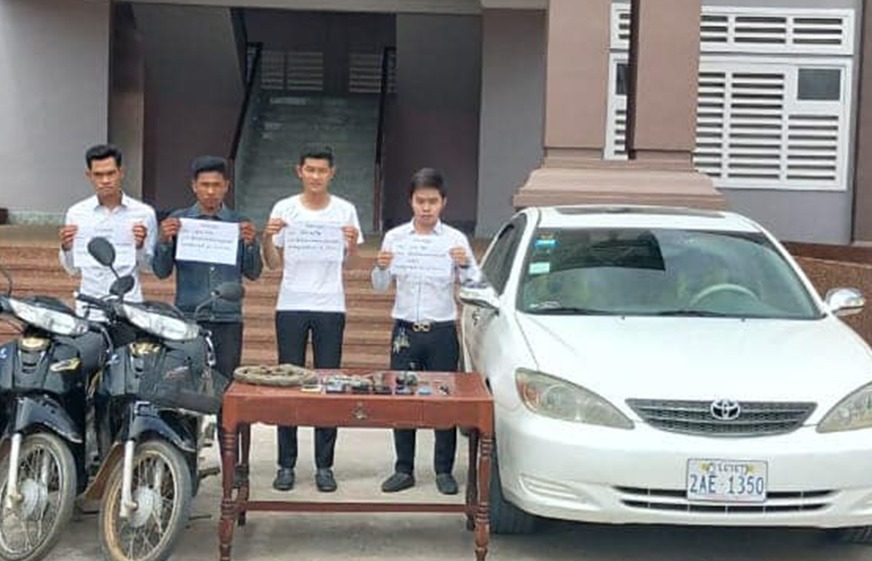Four villagers have been interviewed by the court over the arrests of four men from leasing company Akchalnak Trop LOD, who allegedly brought an ax to the Kampong Chhnang village to repossess a motorbike with overdue monthly payments.
The village — Kampong Ba Srov Tboung in Cholkiri district’s Cholsa commune — held a series of meetings late last week to talk over the incident as well as the fear the villagers carry about leasing companies and microlenders confiscating their possessions.
“I told them not to be frightened,” recounted village chief Dum Sakhorn, saying there were 30 to 40 people at each meeting. “Our brothers and sisters do not have to worry. Microfinance and private lenders cannot confiscate whatever they want. … They have to follow the government’s decisions.”
The four LOD men were arrested by military police a week ago for breaking the lock on the motorbike without prior court approval. They are accused of theft with aggravated circumstances and intentionally causing damage, according to court summonses dated Friday.
The court summoned Sakhorn, debtor Leang Kimcheang, his aunt Phorn Sophal and uncle Mam Phally to be questioned on Monday.
Sophal said that during questioning she retold the events leading up to last week.
Her nephew had bought the motorbike last year with a down payment of more than $500 and a monthly payment of $96 for three years. He paid for 15 months, but was unable to pay for the last three months, she said.
She chained the motorbike to the village chief’s house and scrambled to borrow money to pay LOD. When the collectors arrived, she offered $800 for late payments and penalties, but they refused, she said. They broke the chain with the ax, and tried to take the motorbike away.
“They came to rob the motorbike,” Sophal said.
The village chief and military police intervened, arresting the four men.
As far as provincial military police chief Sak Sarang could recall, it was the first time military police had arrested any debt collectors.
The force had acted because people complained to the prosecutor, who then issued an arrest order. The military police officers were just following orders, Sarang said.
“The most important thing is the law, that when anyone commits a crime, they are punished,” he added.
Spokespersons for the provincial court could not be reached for comment.
Commune police chief Mong Sitha said the company should have notified local authorities before taking action.
“When the company comes to do anything, it just makes agreements with [customers], so local authorities including village chief, commune chief and commune police have no idea about it,” Sitha said.
Sakhorn, the village chief, agreed, saying he was busy arranging land title documents for another villager to borrow money from a microfinance institution when the LOD officers broke the motorbike lock downstairs.
“When I saw them, I asked them: Why are you doing it like this?” he said. “You break the lock and cause trouble — at least you [should] ask me because I am the authority in this village.”
A woman who picked up LOD’s office phone number, but who hung up before giving her name, claimed her officers had been mistreated. “I don’t want to clarify anything because it is useless.”
Last week, lawyers for the company issued a letter denying that the officers had intentionally damaged property, saying the accusation hurt the company’s reputation. Phoung Navuth, lawyer for the company, declined to give comment.













